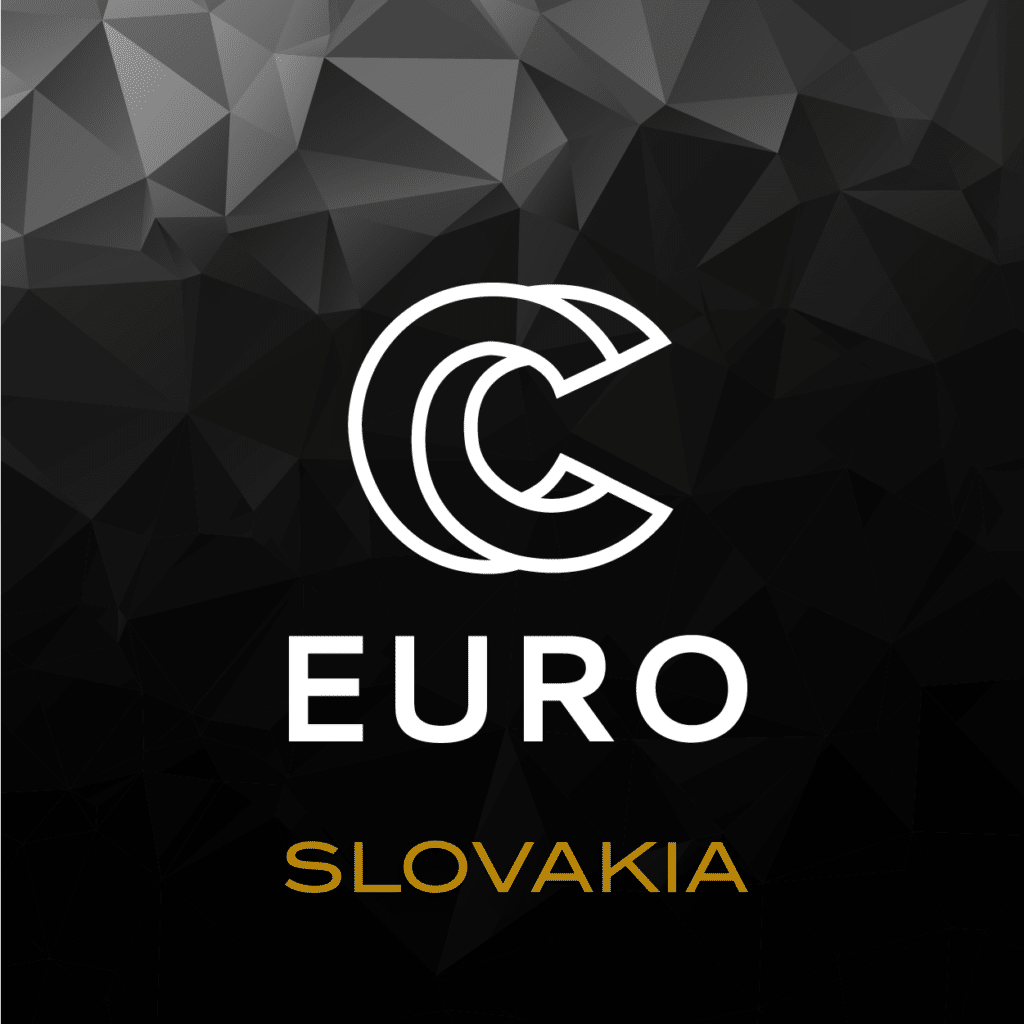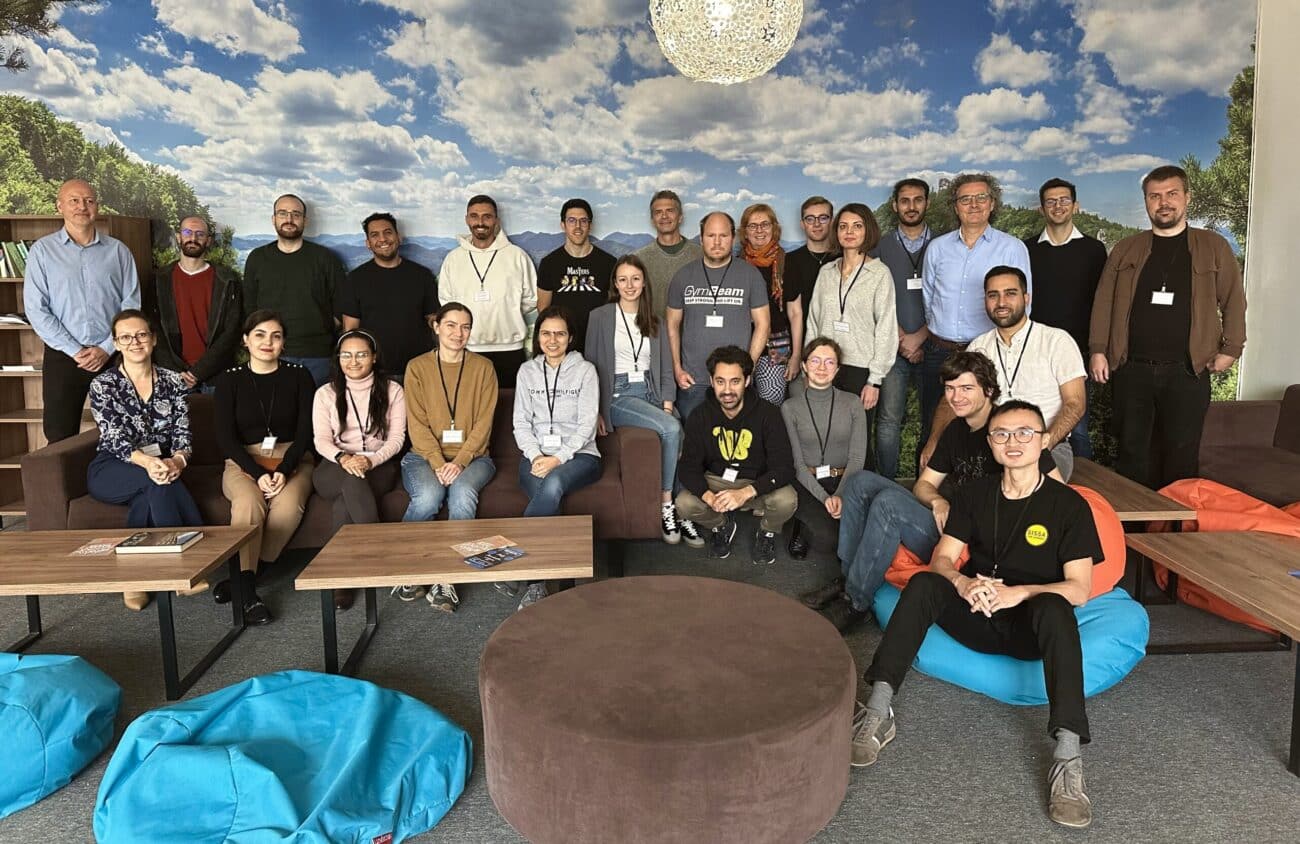
NCC Slovakia
Slovakia has joined a European network of 33 competence centers. The aim of the EuroCC and CASTIEL is to bridge the existing HPC skill gaps while promoting cooperation and the implementation of best practices across Europe. European countries are currently taking part in the initiative and pooling their resources with the EU and private partners to enable the EU to become a world leader in supercomputing.
Clients of the Slovak National Competence Centre will gain access to information obtained from mapping providers and consumers of HPC solutions in Slovakia, they will be provided access to the computing resources and software tools of the HPC lab. The team of experts of NCC will provide consultations on the possibilities of HPC technologies deployment, or will design and assist in the implementation of pilot- or migration of existing solutions. We can also help to build partnerships between the academic sphere, the public and private sectors, or connect our clients with foreign competence centers.
SERVICES
Our team will help you to find the best way to deploy HPC in your scientific or industrial process, train your employees and give access to our computing resources.
- We promote using of HPC and help increase the competencies of HPC users in science, industry, private and public sector.
- Our services are intended for public sector, SMEs, start-ups and academic institutions.
- NCC Slovakia brings up-to-date information about current calls for proposals in high-performance computing.
- Education: regular and on-demand courses, webinars, workshops and hackathons in relevant areas.
- Sharing information obtained from mapping of providers and users of HPC solutions in Slovakia.
- Providing machine time and access to software tools on our high performance computing systems.
- Consultations, design and implementation of pilot HPC solutions, migration of existing solutions.
- Mediation of partnerships between academic, public and private sectors.
All our services and courses are free of charge. Collaborate with us, use our computing resources, learn to code, find out how to optimize parallel code sand use HPC software efficiently.
We regularly publish updates on the activities of the competence center, reports on successful deployment of HPC, cooperation with academia and private sector, and organized events. Subscribe to our newsletter and follow us on social networks!
If you have any question do not hesitate to contact us: eurocc@nscc.sk
NEWS
NCC and CoE Collaboration: BioExcel Workshop on GROMACS and HADDOCK
On October 18 and 19, 2023, a workshop focused on working with GROMACS and HADDOCK software tools was held in Bratislava. The workshop was the result of cooperation between competence centers in Slovakia, v Austria, Czechia and Hungary with BioExcel center of excellence. The BioExcel CoE team develops both applications, so experienced lecturers could not only show common simulations and modeling, but also answer specific questions from participants.

EuroCC Supercomputing Accelerator webinar: Explainable AI
EuroCC Slovakia has joined the #EuroCC Supercomputing Accelerator. The Supercomputing accelerator is a one-stop shop for adopting supercomputing to your advantage and save money. Join us for our webinar, which will be on the topic of: Explainable #AI
The presentation is divided into two parts. In the first part, we are going to provide an introduction to an exciting research field of eXplainable AI (XAI) and show some interesting applications, including how XAI methods help us to discover hidden flaws hidden inside big black-box models. In the second part, we are going to demonstrate how we utilize Devana in our daily work and how its HPC capabilities help us to boost our research.
SUCCESS STORIES
Anomaly Detection in Time Series Data: Gambling prevention using Deep Learning
Gambling prevention of online casino players is a challenging ambition with positive impacts both on player’s well-being, and for casino providers aiming for responsible gambling. To facilitate this, we propose an unsupervised deep learning method with an objective to identify players showing signs of problem gambling based on available data in a form of time series. We compare the transformer-based autoencoder architecture for anomaly detection proposed by us with recurrent neural network and convolutional neural network autoencoder architectures and highlight its advantages. Due to the fact that the players’ clinical diagnosis was not part of the data at hand, we evaluated the outcome of our study by analyzing correlation of anomaly scores obtained from the autoencoder and several proxy indicators associated with the problem gambling reported in the literature.

In our study we propose a completely unsupervised deep learning approach using transformer-based AE architecture to detect anomalies in the dataset – players with anomalous behaviour. The dataset at hand does not comprehend the clinical diagnosis, and amongst other proxy indicators mentioned before only few are available – requests to increase spending limits, chasing losses by gambling more (referred to as chasing episodes later in this article), usage of multiple payment methods, frequent withdrawals of small amount of money and other mentioned later in the text. Clearly, not all the anomalous users must necessarily have problem gambling, hence the proxy indicators are used in combination with AE results, namely the anomaly score. The foundation of our approach rests on the idea that a compulsive gambler is an anomaly within the active casino players, with the literature mentioning their fraction amongst all players being between 0.5% to 5% for chancebased games.


